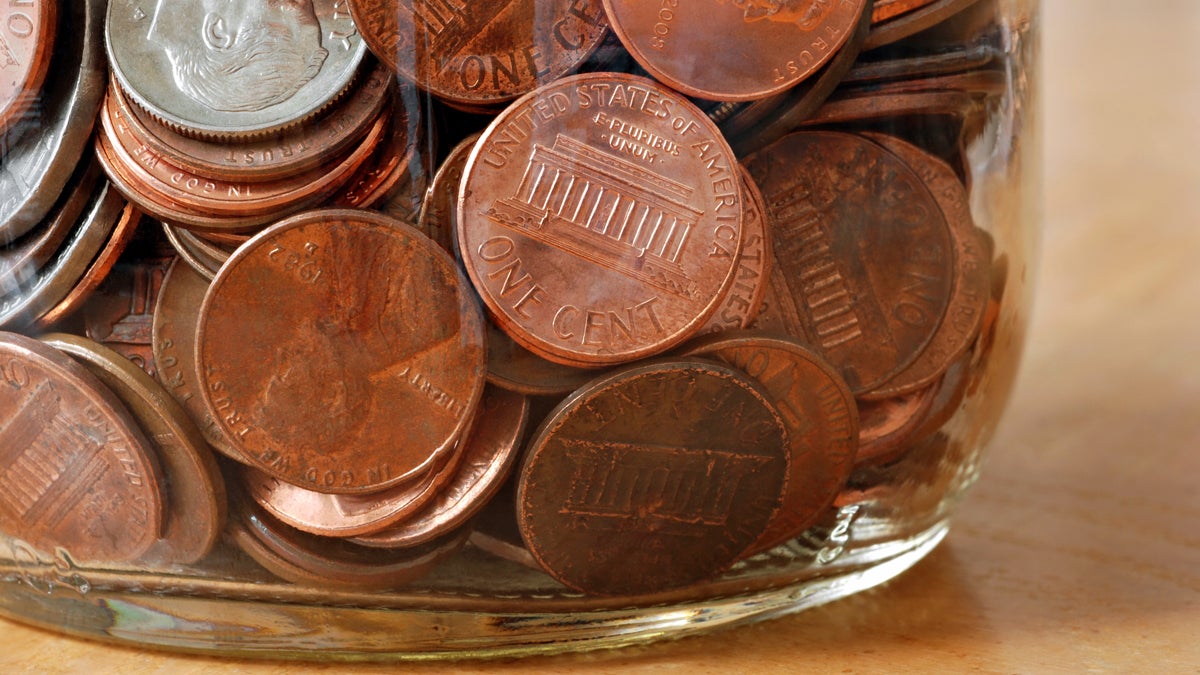Is frugality in your gene pool?

(Coin jar image courtesy of Shutterstock.com)
Science has spoken. It’s not my fault that money flows through my hands like, well, money. I can blame my ancestors. According to a study, “Genetic Effects on Judgement and Choice,” published in the Journal of Consumer Research, spending habits aren’t just learned. They are genetic.
I don’t need to contact Henry Louis Gates to do genealogical research to see the patterns in my family tree. My grandfather was a gregarious, fun-loving fellow who worked hard but liked to live large. He enjoyed going to the racetrack, slipping $10 bills into the hands of maitre ds, and indulging his grandchildren (i.e. me) in whatever frivolity their little heart desired. “Sweetheart, it’s only money,” he used to say, peeling off crisp bills.
His wife, on the other hand, was frugal to an extreme. The Depression or, for that matter, the deprivations of life in czarist Russia, never ended for her. She saved used tea bags and was loath to buy new clothes or, god forbid, go to a beauty salon. She stopped shopping in 1939. In the late 1960s, she still had flapper dresses tucked in her closet and showed up to work at our family’s Center City pharmacy attired like a silent film star. Her penny-pinching had nothing to do with her finances. By all standards, Grandma was loaded.
If my grandmother seemed to be in mortal agony when it came to spending, science backs this up. In another study, “Fatal Attraction: Tightwads and Spendthrifts in Marriage,” conducted at the University of Michigan, brain imaging revealed that frugal people literally feel “pain” at the thought of spending. I could see it in my grandmother’s eyes. When I’d walk into the pharmacy in a new dress, she’s ask, “How much did you pay for that?” Whatever I replied would be met with a cluck and an eye roll. There was a condescending smugness to her interrogations, as if there was moral high ground to her frugality.
My father took after my grandmother. Money was for making and saving. Not for spending. He bought everything — including houses and cars — with cash. The idea of buying something on credit made him turn green. He spent most of his time running around the house turning off lights. As a teenager, I remember asking him if I could purchase an apple from a vending machine.
“Twenty-five cents for an apple?” he cried. “Absolutely not!”
My mother had a decidedly more generous attitude. She had grown up in poverty and wanted to give her daughters everything she never had. Pretty dresses and all the toys, games ,and books a child could want. Nothing was for herself. Everything was “for the children.” Indulging us, gave her pleasure. Of course, that meant hiding her credit cards and bills from my father. The tension was palpable.
When my parents retired and moved to a condo in Boca, for which Dad paid cash, I thought things would calm down. Not a chance. “Now that he doesn’t work, he follows me around the supermarket and drives me crazy pointing out which brands are the cheapest,” she said. “I could kill him.” Fortunately, she didn’t. Instead, Mom forbade Dad to accompany her on grocery trips.
My attitude towards money is more like my mother’s, but it is also tempered by my father’s aversion to debt. When I crave a shopper’s high, I don’t go to Saks, I go to a consignment shop and hunt for a designer blouse. For $1! However, I feel pleasure, not pain, when I enter Nordstrom’s, dine at an upscale restaurant or treat myself to an apple — no matter what the price.
I’m not a psychologist, but it seems to me that the spenders in my family tended to be extroverted, fun loving and optimistic. By comparison, my frugal relatives were introverted, anti-social and prone to worry. They worried because they never had “enough.” Someone else always had “more.” And the next economic crisis was always just around the corner. Could it be that both extremes are flip sides of the same coin?
Studies show that tightwads account for 25 percent of the population and spendthrifts account for 25 percent. Most of us are somewhere in between. But it’s nice to know that no matter where you fall in the spectrum, chances are you’ll end up with someone who is your polar opposite, because that’s how Mother Nature balances accounts.
—
This article previously appeared in WomensVoicesForChange.org.
WHYY is your source for fact-based, in-depth journalism and information. As a nonprofit organization, we rely on financial support from readers like you. Please give today.

